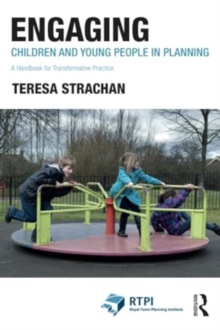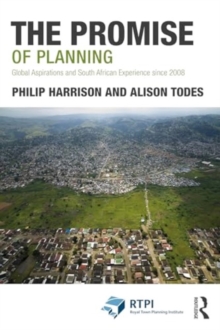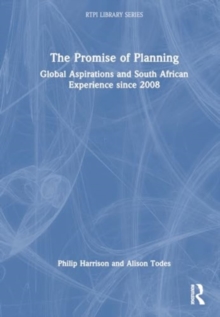
Planning in Indigenous Australia : From Imperial Foundations to Postcolonial Futures Paperback / softback
by Sue Jackson, Libby Porter, Louise C. (Deakin University, Geelong, VIC, AUS) Johnson
Part of the RTPI Library Series series
Paperback / softback
Description
Planning in settler-colonial countries is always taking place on the lands of Indigenous peoples.
While Indigenous rights, identity and cultural values are increasingly being discussed within planning, its mainstream accounts virtually ignore the colonial roots and legacies of the discipline’s assumptions, techniques and methods.
This ground-breaking book exposes the imperial origins of the planning canon, profession and practice in the settler-colonial country of Australia. By documenting the role of planning in the history of Australia’s relations with Indigenous peoples, the book maps the enduring effects of colonisation.
It provides a new historical account of colonial planning practices and rewrites the urban planning histories of major Australian cities.
Contemporary land rights, native title and cultural heritage frameworks are analysed in light of their critical importance to planning practice today, with detailed case illustrations.
In reframing Australian planning from a postcolonial perspective, the book shatters orthodox accounts, revising the story that planning has told itself for over 100 years.
New ways to think and practise planning in Indigenous Australia are advanced. Planning in Indigenous Australia makes a major contribution towards the decolonisation of planning.
It is essential reading for students and teachers in tertiary planning programmes, as well as those in geography, development studies, postcolonial studies, anthropology and environmental management.
It is also vital reading for professional planners in the public, private and community sectors.
Information
-
Available to Order - This title is available to order, with delivery expected within 2 weeks
- Format:Paperback / softback
- Pages:262 pages, 3 Tables, black and white; 27 Halftones, black and white
- Publisher:Taylor & Francis Ltd
- Publication Date:08/08/2017
- Category:
- ISBN:9781138909984
Other Formats
- EPUB from £49.49
- PDF from £49.49
- Hardback from £135.00
Information
-
Available to Order - This title is available to order, with delivery expected within 2 weeks
- Format:Paperback / softback
- Pages:262 pages, 3 Tables, black and white; 27 Halftones, black and white
- Publisher:Taylor & Francis Ltd
- Publication Date:08/08/2017
- Category:
- ISBN:9781138909984










